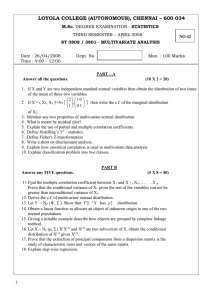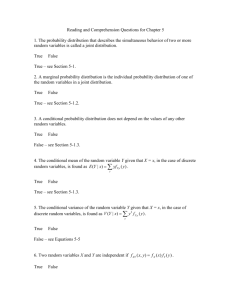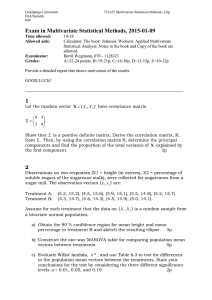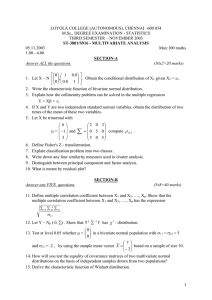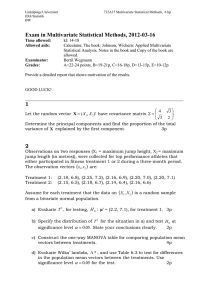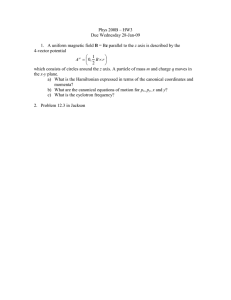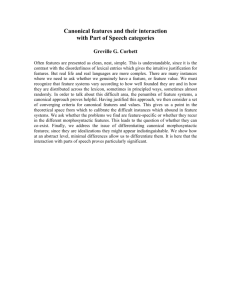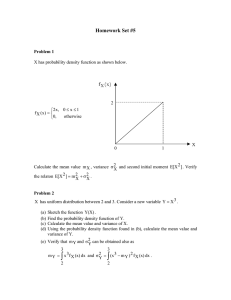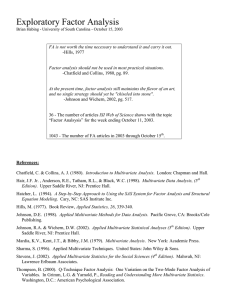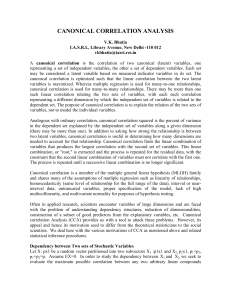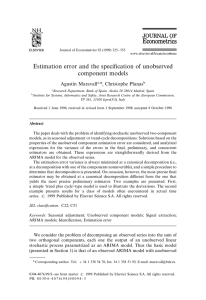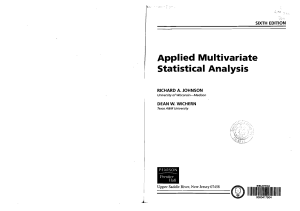LOYOLA COLLEGE (AUTONOMOUS), CHENNAI – 600 034
advertisement
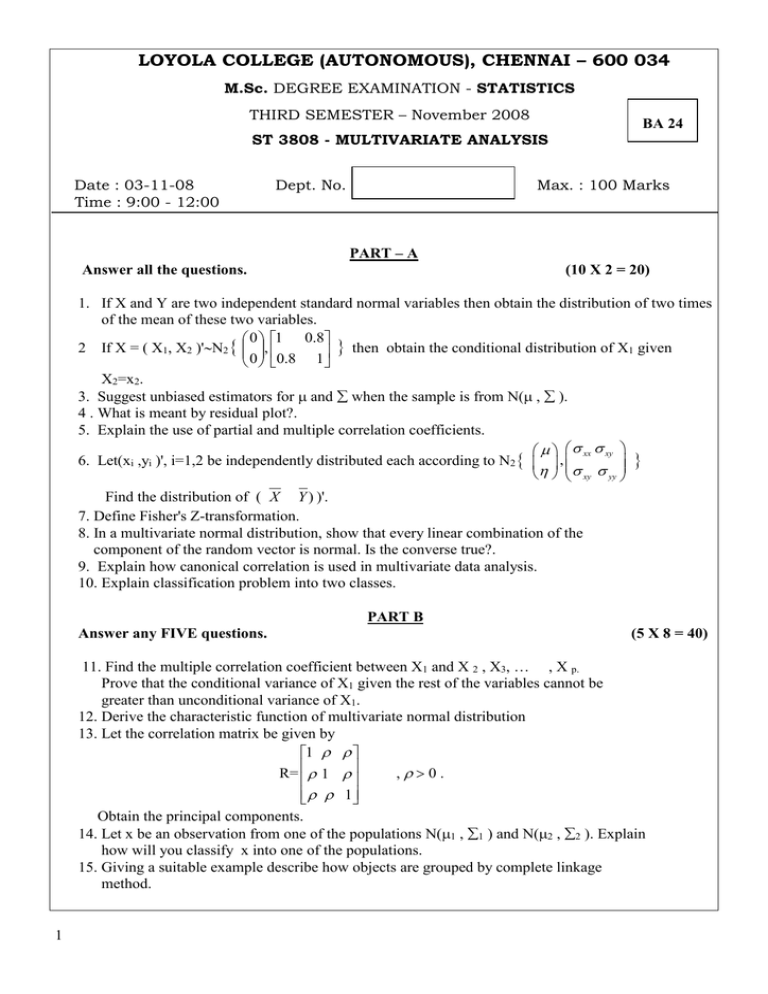
LOYOLA COLLEGE (AUTONOMOUS), CHENNAI – 600 034 M.Sc. DEGREE EXAMINATION - STATISTICS THIRD SEMESTER – November 2008 BA 24 ST 3808 - MULTIVARIATE ANALYSIS Date : 03-11-08 Time : 9:00 - 12:00 Dept. No. Max. : 100 Marks PART – A Answer all the questions. (10 X 2 = 20) 1. If X and Y are two independent standard normal variables then obtain the distribution of two times of the mean of these two variables. 0 1 0.8 2 If X = ( X1, X2 )'N2 , then obtain the conditional distribution of X1 given 0 0.8 1 X2=x2. 3. Suggest unbiased estimators for and when the sample is from N( , ). 4 . What is meant by residual plot?. 5. Explain the use of partial and multiple correlation coefficients. xx xy 6. Let(xi ,yi )', i=1,2 be independently distributed each according to N2 , xy yy Find the distribution of ( X Y ) )'. 7. Define Fisher's Z-transformation. 8. In a multivariate normal distribution, show that every linear combination of the component of the random vector is normal. Is the converse true?. 9. Explain how canonical correlation is used in multivariate data analysis. 10. Explain classification problem into two classes. PART B Answer any FIVE questions. (5 X 8 = 40) 11. Find the multiple correlation coefficient between X1 and X 2 , X3, … , X p. Prove that the conditional variance of X1 given the rest of the variables cannot be greater than unconditional variance of X1. 12. Derive the characteristic function of multivariate normal distribution 13. Let the correlation matrix be given by 1 R= 1 ,0. 1 Obtain the principal components. 14. Let x be an observation from one of the populations N(1 , 1 ) and N(2 , 2 ). Explain how will you classify x into one of the populations. 15. Giving a suitable example describe how objects are grouped by complete linkage method. 1 16. Let X Np (, ). If X(1) and X(2) are two subvectors of X, obtain the conditional distribution of X(1) given X(2). 17. Prove that the extraction of principal components from a dispersion matrix is the study of characteristic roots and vectors of the same matrix . 18. Derive the procedure to test the equality of mean vectors of two p-variate normal populations when the dispersion matrices are equal. PART C Answer any two questions. (2 X 20 = 40) 19. a) Define generalized variance b) Show that the sample generalized variance is zero if and only if the rows of the matrix of deviations are linearly dependent. c) Find the covariance matrix of the multinormal distribution which has the quadratic form 2x12+x22+4x32-x1x2-2x1x3. ( 3+12+5) 20.a) Define i) Common factor ii) Communality iii) Total variation b) Explain the principal component ( principal factor )method of estimating L in the factor analysis method. c) Discuss the effect of an orthogonal transformation in factor analysis method. ( 6+8+6) 2 21. a) Explain in detail T -Statistic with an illustration. b) Distinguish between classification and discrimination with an illustration. (10+10) 22. What are canonical correlations and canonical variables? .Describe the extraction of canonical correlations and their variables from the dispersion matrix. Also show that there will be p canonical correlations if the dispersion matrix is of size p. ( 2+10+8 ) ************** 2
